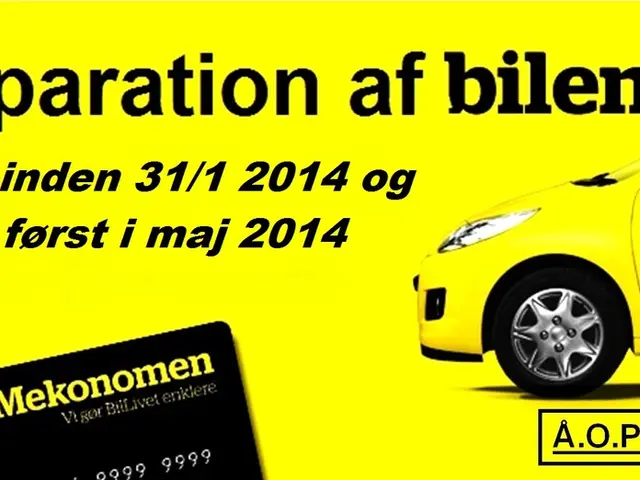Trouble Brewing at Ford's Cologne Plant: Union Vows Indefinite Strike
Striking Ford workers in Cologne announce preparedness for an ongoing work stoppage without limitation - Ford workers in Cologne, Germany, are prepared for an ongoing strike
Get ready for a potential showdown between Ford and its workers in Cologne. According to IG Metall, a whopping 93.5% of its members at Ford have declared their support for enforcing worker-friendly regulations in a new social tariff agreement through any means necessary, including strikes. The vote saw a remarkable 95.7% turnout — way above the minimum threshold. "Our employees are solidly behind us," says David Luedtke, IG Metall's spokesperson at Ford Cologne. With the clear mandate, the union is now mulling over its next moves, and strikes could kick off as soon as next week, although the extent is uncertain. Prior warning strikes took place in March and April. If things heat up, these strikes could be more intense and relentless.
"We're absolutely determined to implement our colleagues’ wishes," said Kerstin Klein, first chairwoman of IG Metall Cologne-Leverkusen, regarding the ballot result. "Ford needs to act — or else, we'll take action." The union warns management that a lengthy labor dispute could seriously impact Ford's commercial vehicle business in Europe and dent its image. This would mark the first time a strike has followed a ballot at Ford in Cologne. In the past, agreements have been reached after ballots.
Ford employs around 11,500 workers in the city, with most of them being union members. The company's German subsidiary manufactures two electric car models in Cologne, but sales are sluggish. The investment of nearly two billion euros to modernize the plant for electric vehicles hasn't paid off yet, with the German business still recording losses.
Management wants to cut 2,900 jobs in Cologne by the end of 2027, but it needs the works council's approval. An agreement signed two years ago rules out dismissals for operational reasons until 2032.
Verdi is pushing for substantial severance packages for departing employees and financial protection for remaining employees if Ford faces bankruptcy. This is a potential risk since the US parent company has withdrawn its guarantee. As negotiations for a new social tariff agreement reached a standstill, IG Metall called for a ballot and secured the necessary backing. The union can now call for strikes, either temporary or indefinite. A Ford representative responded that the company respects the right to strike but is committed to constructive negotiations. However, IG Metall announced that negotiations would be put on hold until the employer presents a feasible offer.
- Cologne
- Ford Motor
- Strike
- Metal
- IG Metall
- Auto
- Employer
- David Luedtke
- Warning strike
- Leverkusen
Insights:
- A successful strike can halt or significantly reduce production, leading to delays in meeting customer demands and potential financial losses.
- A strike can increase tension between management and labor unions, complicating future negotiations.
- Strikes can provide labor unions with leverage in negotiations, as they demonstrate the union's ability to disrupt operations and potentially set a precedent for future negotiations.
If you're referring to a different strike at Ford's Cologne plant, more specific details would be needed. For information on the Ford-Aktion, it was a campaign aimed at recruiting union members among Ford's workforce in Cologne, Germany, rather than a strike per se.
- The Union, IG Metall, is considering an indefinite strike at Ford's Cologne plant to enforce employee-friendly policies in a new social tariff agreement.
- David Luedtke, IG Metall's spokesperson at Ford Cologne, has stated that the union's employees firmly support the move.
- If strikes occur, they could impact Ford's commercial vehicle business in Europe and damage its corporate image.
- Ford's German subsidiary manufactures electric vehicles in Cologne, but the company is still recording losses.
- Management at Ford is seeking to cut 2,900 jobs in Cologne by 2027, but this requires the works council's approval, and existing contracts rule out dismissals for operational reasons until 2032.








